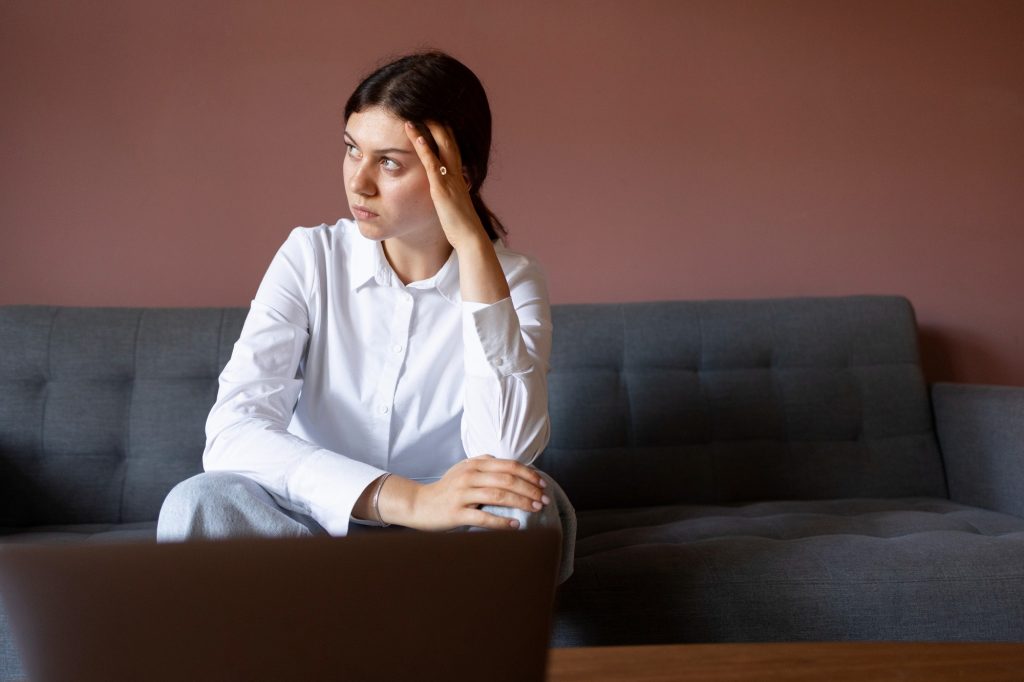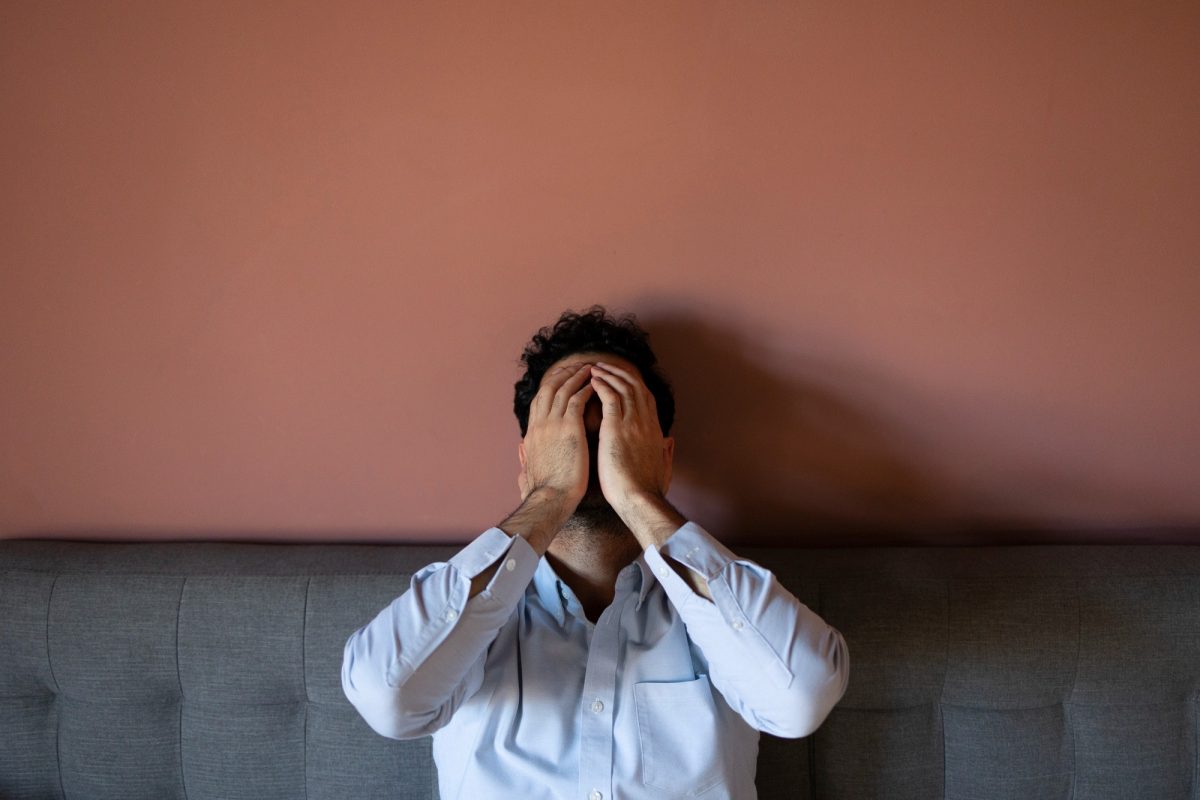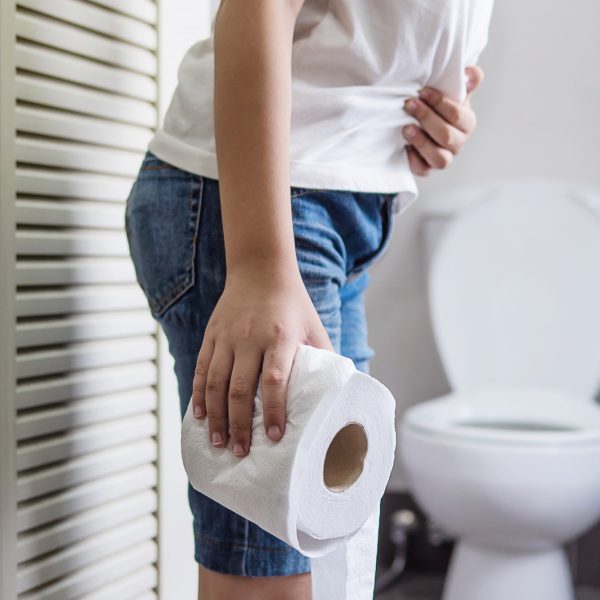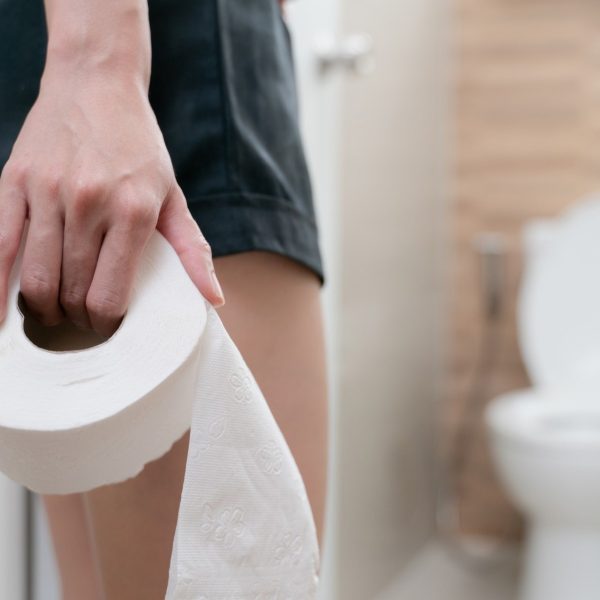Have you been feeling a lot of stress and anxiety and having trouble with your stomach? Have you experienced bowel discomfort when you are in a high-pressure or worrying situation? You may have IBS-induced mental health issues or vice versa. Dealing with IBS and its symptoms is already a big task; when coupled with mental health issues, it may leave you completely drained. You are not alone. According to doctors, roughly 60% of IBS patients fit the criteria for one or more psychiatric illnesses. So, let’s dig deeper and understand the connection between the two biggies of the ailment industry and the ways to cope with them.
It is unclear what comes first, stress, anxiety, depression, or Irritable Bowel Syndrome (IBS). However, research shows that the three are co-occurrences. Your IBS symptoms arise from a malfunction along the brain-gut axis i.e. the line of communication between your brain and gastrointestinal tract. This malfunctioning may cause aberrations in your immune system and the gut microbiome.
Around half of all people with IBS, and notably those with chronic stomach discomfort, express psychiatric and psychological symptoms and anguish in addition to aberrant and perplexing symptoms.

Depression and generalised anxiety disorder are the most commonly coexisting mental health conditions with IBS.
People with anxiety, including those with irritable bowel syndrome, frequently obsess over mundane concerns like their health, finances, and professional prospects. There may be additional signs and symptoms such as nausea, vomiting, diarrhoea, constipation, headache, dizziness, and irritability.
Depression and irritable bowel syndrome
Psychological and social factors can cause IBS to flare up. These factors affect how well digestion works, how you experience symptoms, and how effectively they are treated. Research states that depression can aggravate pre-existing medical issues and vice versa.
The gut and the brain communicate with one another in IBS.
People with IBS describe the condition’s consequences on their ability to go about their daily lives, as well as on their thoughts, feelings, and actions. They mentioned experiencing “uncertainty and unpredictability with loss of independence, spontaneity, and social relations as well as feelings of fearfulness, shame, and embarrassment.”
Your antidepressant prescription may help alleviate your IBS symptoms and vice versa. Your doctor is the best person to advise you on your prescription choices.
The co-occurrence of irritable bowel syndrome and major depression is not unusual. See a doctor if you’ve had any of the symptoms of depression. Diagnostic procedures allow them to rule out other possible causes of the symptoms being experienced. They may recommend seeing a psychiatrist or psychologist if they determine that depression is indeed the issue.
IBS and anxiety
Irritable bowel syndrome (IBS) is usually not caused by mental health issues like anxiety, although those who suffer from it may be more vulnerable to the effects of stress.
When you’re feeling stressed, anxious, or depressed, your brain releases hormones that send pain signals to your colon. Colon spasms may be more noticeable to the conscious mind in times of high stress and worry.
Stress can hurt the immune system, which may lead to IBS.
Coping Mechanisms
Maintaining a healthy stress level has been shown to reduce or eliminate IBS symptoms. Your stomach has its own, distinct intelligence, the gastrointestinal nerve system. This is the physiological basis for the well-known phenomenon of experiencing “butterflies in the stomach” when experiencing nervousness. It’s like having a “second brain” in charge of digestion. In addition, it is in continual communication with your natural brain. If you have IBS, this link may help you control your symptoms.
- Just engaging in a pleasurable activity, such as chatting with a friend, reading, listening to music, or going shopping, can relieve stress immediately.
- Stress and depression can be alleviated with regular exercise like walking, running, or swimming. They aid in typical bowel contractions rather than an exaggerated response.
- The relaxation response in the body can be triggered through a variety of practices, including meditation, relaxation breathing, yoga, tai chi, etc.
- You can take classes in meditation and mindfulness-based stress reduction. By undergoing mental retraining, you can learn to cope with stress more effectively.
- You can calm down and feel better by practising relaxation techniques like deep breathing. Visualization, in which one imagines a calm scene, is another technique that can be practised.
- In addition to medication, a healthy diet and sufficient sleep can alleviate IBS symptoms. Increase your consumption of fermentable fibre and cut out sugar substitutes. Consume a diet rich in fruits and vegetables, as well as whole grains, bread, and cereals. You should eat more nuts, lean meats, fish, poultry, and dairy. Reduce consumption of processed foods because they tend to be high in unhealthy sugar, salt, and saturated fat.
- You could benefit from participating in a support group for people who suffer from digestive problems like Irritable Bowel Syndrome (IBS). Participating members understand what it’s like to have IBS. Support from them might oftentimes be more substantial than that of even your closest pals.
Take Away
Mental health disorders and IBS can both contribute to a disturbed lifestyle pattern. It is important to keep in mind that keeping your stress levels down has been shown to reduce the severity of IBS symptoms and potentially prevent their occurrence. By introducing a few modifications to your daily routine and visiting your doctor regularly, you can improve your symptoms considerably. In severe cases, therapy may also be recommended, which can effectively lower the symptoms of IBS.










Share this article